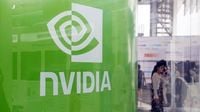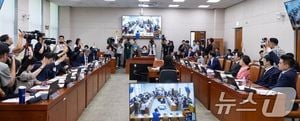In a significant shift in U.S.-China trade relations, Nvidia Corporation, the American semiconductor giant, has been granted approval to resume sales of its H20 artificial intelligence (AI) chips to China. This development marks a surprising reversal of the export restrictions imposed earlier this year and comes amid ongoing trade negotiations between the two global economic powerhouses.
On July 14, 2025, Nvidia announced it had filed applications with the U.S. government to restart shipments of its H20 AI accelerator to China, receiving assurances that the necessary export licenses would be approved soon. The company’s CEO, Jensen Huang, revealed this news following a recent meeting with former President Donald Trump at the White House, where Huang advocated strongly against the restrictions. He argued that limiting American technology sales to China risks undermining the United States’ position as a global leader in artificial intelligence.
The H20 chip, designed specifically to comply with prior U.S. trade curbs, had become a focal point in the escalating technological competition between the two nations. Initially released in 2024 to maintain Nvidia’s foothold in the Chinese market—which accounted for approximately 13% of its sales in 2024—the chip’s export was blocked in April 2025 when the White House mandated a special license for shipments to China. This restriction forced Nvidia to halt sales, resulting in substantial financial losses.
According to Nvidia, the export curbs led to a missed revenue opportunity of $2.5 billion in the first quarter of 2025 alone, with an expected additional $8 billion loss anticipated in the second quarter. Consequently, the company removed China from its sales and profit forecasts in June, citing uncertainty surrounding export controls. The recent license approval thus represents a major financial reprieve and a strategic win for Nvidia, which became the first publicly traded company to reach a $4 trillion valuation last week, largely fueled by its AI technology.
Beyond financial implications, the resumption of H20 chip sales is entwined with broader geopolitical and trade considerations. Commerce Secretary Howard Lutnick confirmed on July 15 that Nvidia’s export license approval was part of a wider trade agreement with China focusing on rare earth elements—critical materials used in numerous high-tech applications including electronics and defense. “We put that in the trade deal with the magnets,” Lutnick said, referencing the rare earth magnets that had been a sticking point in recent negotiations.
Rare earth exports from China had been halted earlier in 2025 following trade tensions, but the recent agreement aims to ease these restrictions in exchange for lifting certain U.S. export controls, including those on microchip design software, ethane, and jet engines. Treasury Secretary Scott Bessent described Nvidia’s export controls as a “negotiating chip” in the broader context of U.S.-China trade talks, which also involve tariff reductions.
The decision to allow H20 chip sales has drawn swift criticism from U.S. lawmakers concerned about national security and technological dominance. Democratic Representative Raja Krishnamoorthi called the move “dangerously inconsistent” with the administration’s previously stated export control policies. Meanwhile, Republican John Moolenaar, chair of the House Select Committee on China, emphasized the chip’s significance, noting it played a “significant role in the rise of PRC AI companies like DeepSeek,” a Chinese startup known for developing advanced AI models at a fraction of the cost of their American counterparts. Moolenaar vowed to seek clarification from the Commerce Department regarding the decision.
Despite these concerns, Nvidia and other industry leaders argue that restricting sales of American AI technology could backfire by encouraging China to develop its own homegrown alternatives, potentially eroding U.S. technological leadership. Huang told CNN’s Fareed Zakaria, “In order for America to be the world leader, just like we want the world to be built on the American dollar, using the American dollar as a global standard, we want the American tech stack to be the global standard.” He emphasized the importance of maintaining American technology as the foundation of the global internet and AI ecosystem.
Chinese tech giants ByteDance and Tencent are reportedly among the companies applying for licenses to purchase H20 chips, underscoring the chip’s importance in China’s AI ambitions. Sources familiar with the matter revealed that Nvidia maintains an approved list of Chinese companies eligible to purchase the chips, although the company declined to comment publicly on this system. ByteDance denied submitting any applications at this time, while Tencent did not respond to requests for comment.
The H20 chip is widely believed to have contributed to the development of DeepSeek, an advanced Chinese AI model, highlighting the chip’s strategic value beyond commercial sales. AI expert Divyansh Kaushik of Beacon Global Strategies noted, “If China is able to get a million H20 chips, it could significantly narrow, if not overtake, the U.S. lead in AI.” This potential shift in the balance of AI power adds urgency and complexity to the trade-off between economic interests and national security.
Adding to the competitive landscape, Advanced Micro Devices Inc. (AMD), another major U.S. chipmaker, announced on July 15 that it plans to resume sales of its MI308 AI chips to China, following Department of Commerce assurances that export license applications would be reviewed. AMD’s shares rose 7% in response to the news, reflecting investor optimism about renewed access to the Chinese market.
Jensen Huang’s visit to Beijing, his second this year, coincides with a supply chain expo where he is scheduled to hold a media briefing. His presence in China underscores the importance Nvidia places on the Chinese market, which generated $17 billion in revenue for the company in the fiscal year ending January 26, 2025. Huang described the Chinese market as “massive, dynamic, and highly innovative” during an interview with Chinese state broadcaster CCTV.
However, Huang’s visit is under scrutiny in the U.S., where bipartisan senators recently urged him to avoid meetings with Chinese companies linked to military or intelligence activities or those on the U.S. restricted export list. This reflects ongoing concerns about the dual-use nature of AI technologies and the risks of enabling military advancements in rival nations.
The resumption of Nvidia’s H20 chip sales to China thus encapsulates the complex interplay of technology, trade, and geopolitics shaping the AI arms race. While it offers significant commercial benefits and signals a potential thaw in U.S.-China trade tensions, it also raises challenging questions about maintaining U.S. technological supremacy and safeguarding national security.
As the global AI landscape continues to evolve rapidly, Nvidia’s bold move to re-engage with the Chinese market signals that the race for AI dominance will be fought not only in laboratories and boardrooms but also through delicate diplomatic negotiations and strategic trade decisions.




